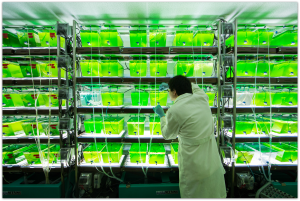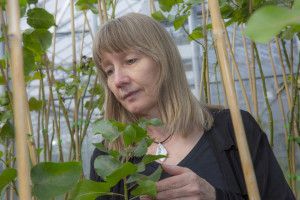 New research stitches together the best parts of several different bacteria to synthesize a new biofuel product that matches current engines better than previously produced biofuels.
New research stitches together the best parts of several different bacteria to synthesize a new biofuel product that matches current engines better than previously produced biofuels.
“My lab is interested in developing microbial biosynthetic processes to make biofuels, chemicals, and materials with tailored structures and properties,” says Fuzhong Zhang, associate professor at the School of Engineering & Applied Science at Washington University in St. Louis. “Previously, we engineered E.coli to produce a precursor compound that leads to the production of advanced biofuels. In this work, we took the next step toward the actual manufacture.”
Zhang’s research focuses on engineering metabolic pathways that, when optimized, allow the bacteria to act as a biofuel generator. In its latest findings, recently published in Biotechnology for Biofuels, Zhang’s lab used the best bits of several other species—including a well-known pathogen—to enable E. coli to produce branched, long-chain fatty alcohol (BLFL), a substance that can be used as a freeze-resistant, liquid biofuel.


 New research indicates that poplar trees could be an economically viable biofuel material.
New research indicates that poplar trees could be an economically viable biofuel material. The aviation industry produces
The aviation industry produces  Biofuels have become a promising potential alternative for traditional fossil fuels. However, producing biofules only make sense if the greenhouse gasses emitted are less than other means of producing energy.
Biofuels have become a promising potential alternative for traditional fossil fuels. However, producing biofules only make sense if the greenhouse gasses emitted are less than other means of producing energy. Renewable energy is on the rise, but how we store that energy is still up for debate.
Renewable energy is on the rise, but how we store that energy is still up for debate.

